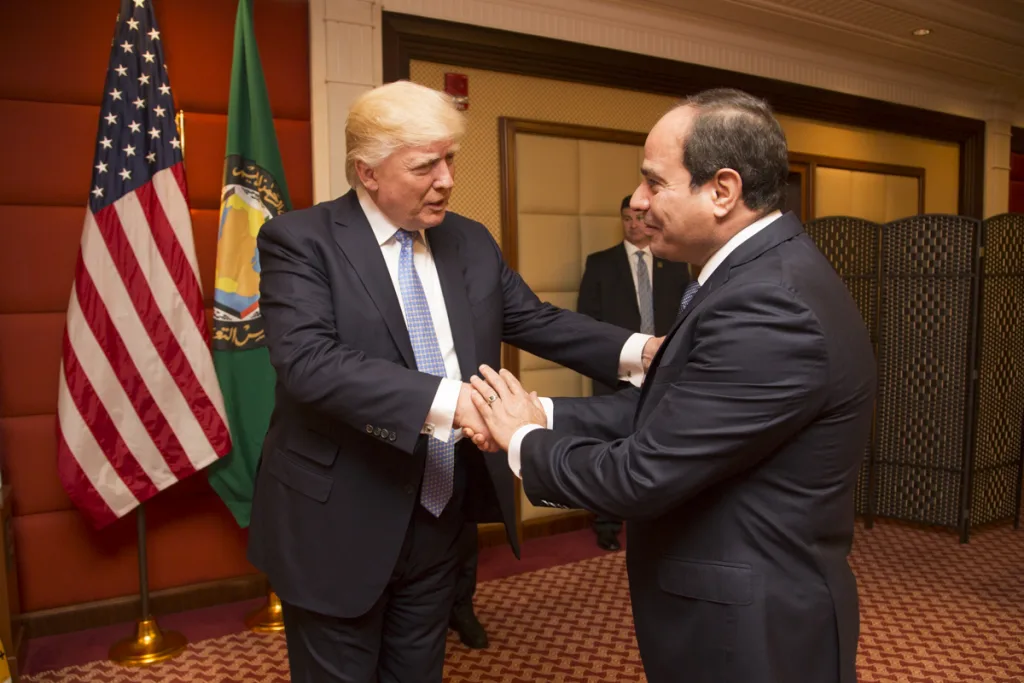WASHINGTON
After his meeting with the Israeli Prime Minister Benjamin Netanyahu on Tuesday. The USA President Donald Trump said for the fourth time that Palestinians must displaced totally from Gaza, saying people there had no alternative but to leave the Palestinian enclave devastated by Israel’s military assault.
This statement by President Trump is significant because it suggests a drastic and controversial policy shift regarding the Israeli Palestinian conflict. Proposing the permanent displacement of Palestinians from Gaza could have far-reaching implications for regional stability, humanitarian conditions, and international relations. It also highlights the ongoing humanitarian crisis in Gaza, which has been exacerbated by recent military actions
Displacing the Palestinians from Gaza and west bank is a long-term and a short-term solution!
Trump said his suggestion of displacing the Palestinians’ citizens from Gaza, the same issue that he ordered with last Jan. 25 after his inauguration.
Trump asked before Egypt and Jordan to take the Palestinians in their countries.
It is exactly an opposite situation of the ceasefire treaty which calls to stop fighting and allow the Palestinians to go back to their homes.
When asked back then if he was suggesting a long-term or short-term solution, he said: “Could be either.”

He has since reiterated that plan at least four times, including on Tuesday when he said Palestinians in Gaza could go to other countries beyond Jordan and Egypt as well.
Jordan, Egypt and other Arab nations, as well as Palestinian leaders, have publicly rejected the idea that critics say would amount to ethnic cleansing.
Leaders from Jordan, Egypt, Saudi Arabia, Qatar, the UAE, and Palestinian officials have strongly opposed President Trump’s proposal. They argue that forcibly displacing Palestinians from Gaza would violate international law, threaten regional stability, and undermine the prospects for a two-state solution.

It’s clear that this proposal has sparked significant backlash and concern among Arab nations and Palestinian leaders
The U.S. president’s comments have echoed long-standing Palestinian fears of being permanently driven from their homes.
“I feel very differently about Gaza than a lot of people. I think they should get a good, fresh, beautiful piece of land, and we get some people to put up the money to build it and make it nice and make it habitable and enjoyable,” Trump told reporters on Tuesday.
“I don’t know how they (Palestinians) could want to stay,” Trump said when asked about reactions by Palestinian and Arab leaders to his proposal.
“They are not going to want to go back to Gaza,” Trump later said about his proposal.
President Trump’s statement reflects his vision for an alternative solution to the Gaza situation. However, it is important to note that such proposals are highly controversial and face significant political and legal challenges. Displacing an entire population and relocating them to a new area is complex and fraught with ethical and humanitarian concerns.

The rejection by Arab nations and Palestinian leaders underscores the complexities of the Israeli Palestinian conflict and the importance of seeking solutions that respect the rights and aspirations of all parties involved. This proposal would need to address various legal, logistical, and ethical issues to gain broader acceptance.
Israel’s military assault on Gaza has killed over 47,000 Palestinians, according to the Gaza health ministry, and led to accusations of genocide and war crimes that Israel denies.
The assault has also internally displaced nearly Gaza’s entire population and caused a hunger crisis. The fighting has currently paused amid a fragile ceasefire.
The latest bloodshed in the decades-old Israeli Palestinian conflict was triggered on Oct. 7, 2023, when Palestinian Hamas militants attacked Israel, killing 1,200 and taking about 250 hostages, according to Israeli tallies.
